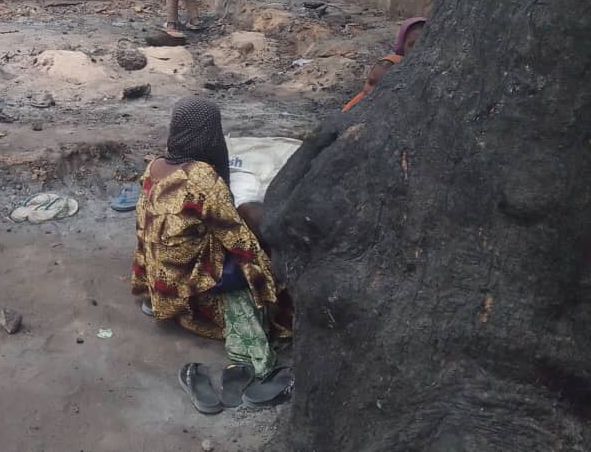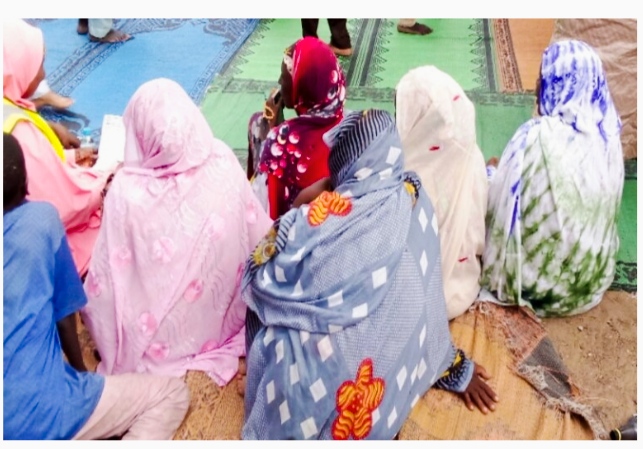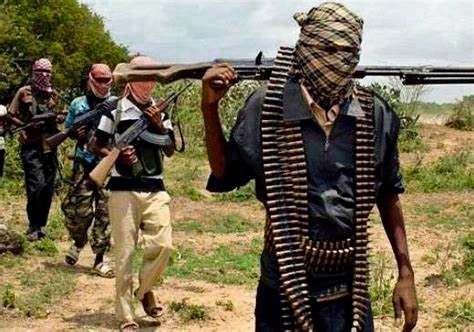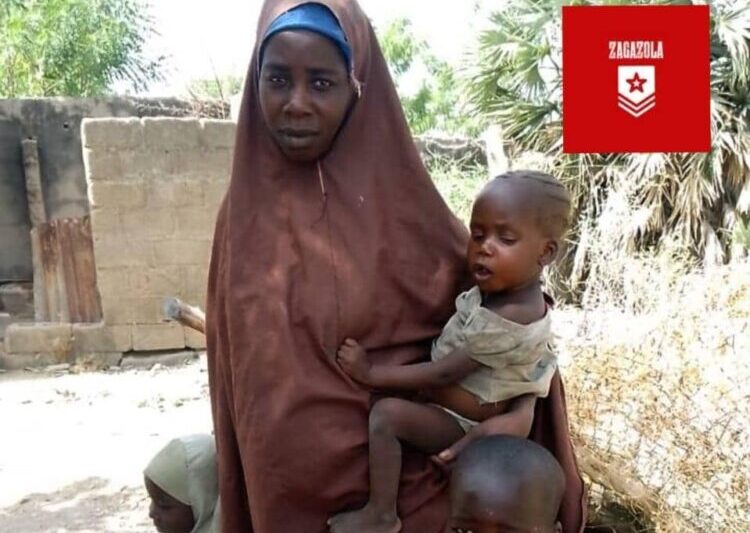Displaced Borno State woman is angry about ‘false truths’ that IDPs voluntarily returned to live with ‘ruthless and murderous’ insurgents in a hideout in Ngala forest.
“When insurgents catch you, they will bury you alive in a big hole with only your head uncovered. They leave you there until you die.”
These were the chilling words of Goniram (not her real name), a displaced woman who is angry about speculation and “false truths” that more than 200 women and girls voluntarily decided to go and live with insurgents in the forest.
“They were abducted. No one would go back voluntarily to live with those ruthless murderers,” she said.
The women and girls went missing on Thursday, February 29. They were collecting wood in a forest on the outskirts of Ngala in Borno State when they were surrounded by members of the Jamā’at Ahl as-Sunnah lid-Da’way Wa’l-Jihād (JAS), better known as Boko Haram.
The armed men abducted them and took them to a hideout in a forest close by.
Goniram told RNI that she was speaking out because she could not longer sit mutely as government officials and others spread the false rumours.
Details about the abduction started to emerge only on March 4 because Gamboru Ngala is a remote area that does not have reliable telecommunications.
Ngala, the headquarters of the Gamboru Ngala Local Government Area, is close to the border with Cameroon.
The number of displaced persons abducted is still not known but it is estimated to be more than 200, mainly women and girls.
The abductees were taking refuge in three internally displaced persons’ camps in Ngala – the Babban Sansani, Zulum and Arabic camps. They were fetching wood for cooking and to sell when insurgents surrounded them and took them to their hideout.
On March 6 the United Nations confirmed the abduction and called for the immediate release of the women and girls.
In a statement released on March 6, Mohammed Fall, the United Nations resident and humanitarian coordinator in Nigeria, strongly condemned the abduction.
“I stand in solidarity with the families of all those abducted, especially children, and their communities and urge those who have abducted them to release them without harm.
However, almost two weeks after the abduction, it has become evident that the Borno State government has doubts that all the displaced women and girls were forcibly taken.
Babagana Umara Zulum, the state governor, claimed that some of the women and girls might have returned to the bush voluntarily.
He made the disclosure while hosting a team of diplomats, a UN delegation and development partners in Maiduguri, the state capital.
“We are yet to ascertain the exact number of abducted victims. My office has not received any official communication. It is thought that some of the women and girls may have decided to go voluntarily. And that’s what I’m afraid of. If people decide to go to the bush voluntarily, you cannot do anything to stop them.”
He highlighted the challenge of hunger among IDPs, which he said could make them susceptible to recruitment by insurgents.
He called for support from humanitarian agencies and non-governmental organisations (NGOs), saying that it was no longer sustainable for the government to keep people in IDP camps.
“But the problem is that we have started experiencing donor fatigue. Most of the donors have left. Even for those that are around, the quantum of support that they are providing to the IDP camps has been reduced drastically.”
Zulum said he knew people were tired of living in IDP camps. He reiterated his administration’s commitment to constructing 85,000 new houses in 66 communities in the state aimed at resettling IDPs and other victims of the insurgency.
Goniram, who lives in Zulum IDP camp in Ngala, told RNI that she was angry and upset that people thought the women and girls had left voluntarily.
“The kidnapped women didn’t go willingly to the armed groups’ enclaves as claimed by government officials and other people.
“We still have not had heard anything from the abducted women. Security operatives have conducted intensified patrols and they are still looking for the missing women.
“Some time ago, Boko Haram insurgents warned all displaced people not to go near their hideouts in the forest. They even claimed that there had been occasions when some displaced women snuck into their hideouts and ate their food.
“Boko Haram told us that we were not allowed to go into the forest to fetch wood. We don’t listen because that is the only means of we have to earn a living. We use the wood to cook and the rest we sell.
“We go to the forest because of severe famine – we are starving.”
Goniram said that on February 29 many displaced women and children went into the forest.
“The insurgents surrounded them and they selected only young women and girls. They told the older women to go.
“To say that the women went to the hideout voluntarily is just not true. They were forcibly abducted by Boko Haram.
“There is no reason for anyone to join Boko Haram. These insurgents are murderers. They are ruthless. They kill innocent people – it doesn’t matter if they are men, women or children.
“Those who go into the forest in search of firewood always risk their lives and safety.
“When insurgents catch you, they will bury you alive in a big hole with only your head uncovered. They leave you there until you die.
“This is how they torture and kill innocent people in the forest. And this is why not a single displaced person wants to be associated with Boko Haram. We are afraid of them.
“The murderous acts of Boko Haram are the main reason we are still taking refuge in IDP camps.”
Goniram said that if the government, humanitarian agencies and NGOs provided sufficient aid to displaced people, there would be no need for them to risk their lives searching for firewood and food.
“The army and other operatives need to put in place stringent security measures and to intensify clearance operations in the nearby forest. That would put an end to the abduction of women and girls. And they would also be able to find Boko Haram hideouts and rescue those women and girls. The hideouts are close by; they are not too deep in the forest.”
Prior to the abduction, on Sunday, February 25, more than 100 displaced women in Dikwa threatened to go back to the bush to live with insurgents.
During a protest, they shouted that they were starving. They threatened that they would return to the insurgents in the bush if the government did not provide food for them.
On Monday, February 26, a group of about 500 displaced women in Mafa held a similar demonstration. They said they did not want to live in IDP camps and would rather return to the forest to live with insurgents where they would at least get food.
SHETTIMA LAWAN MONGUNO









